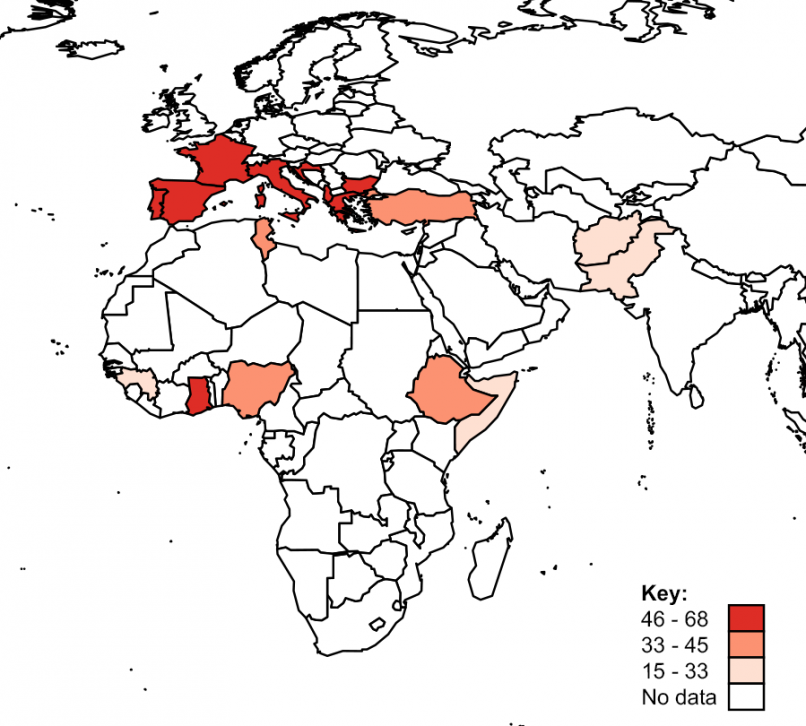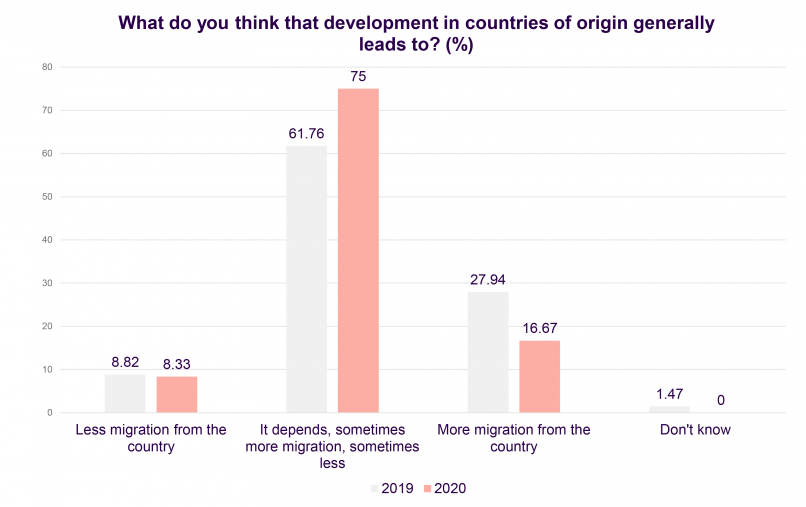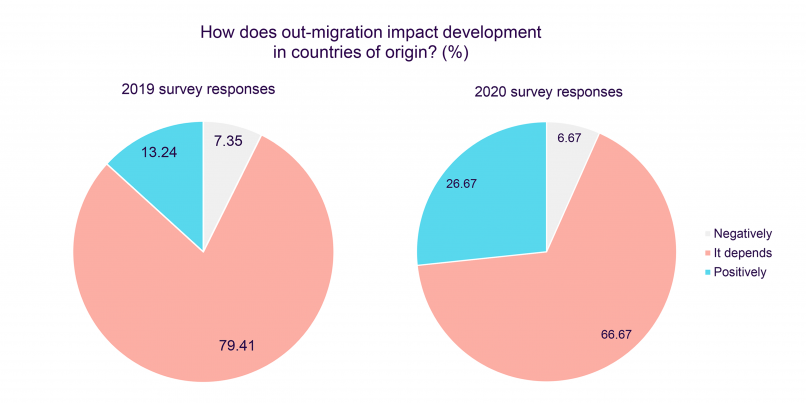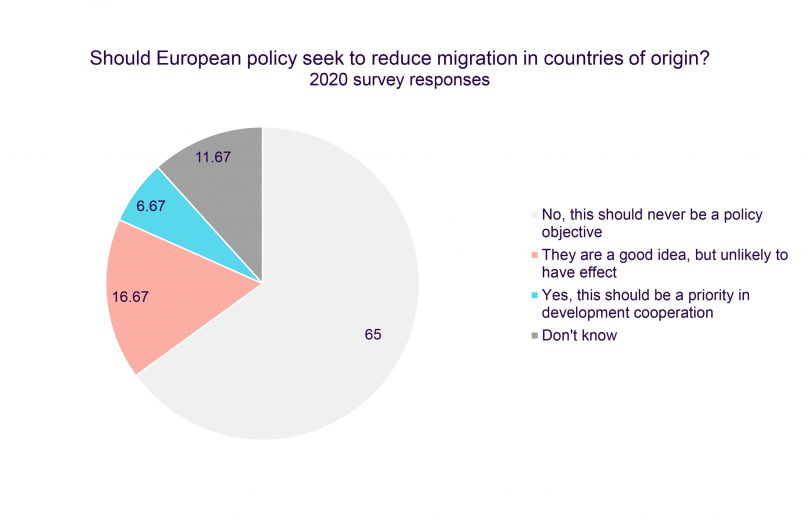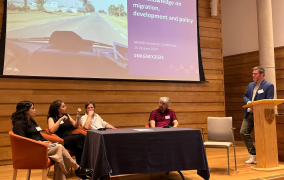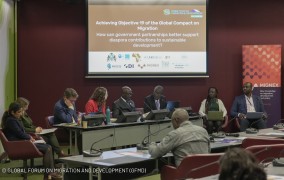News
Key takeaways from the second End User-Panel annual survey
The MIGNEX End-User Panel now boasts 160 members, and the results are in from our second survey conducted annually among our End-User Panel.
Since the launch of MIGNEX in 2018 we’ve had an End-User Panel (EUP) comprised of members of the policy community, academia, civil society and private sector who work in the migration space. The EUP ensures the practical relevance of MIGNEX research to its potential end audience.
Every year we ask the End-User Panel for feedback in an annual survey. The baseline survey was conducted during the summer of 2019, with the second annual survey conducted a year later in the summer of 2020.
Key takeaways from the second annual survey
The response rate for the second annual survey in 2020 was 37%, compared to 54% for the baseline survey the year before, probably linked to the timing of the second survey during the COVID-19 pandemic. 90 members responded to either the 2019 or 2020 annual survey, and 4 in 10 of these responded to both surveys.
Respondents were asked about 1) their country and thematic areas of interest, 2) their views on the migration development nexus and 3) on MIGNEX outputs. The key takeaways are summarised below.
Country and thematic areas of interest
Across both waves of surveys, 60% End-Users stated an interest in Europe. Of the ten MIGNEX countries, the strongest interest among users is in Ghana and Nigeria, with strong interest also in Tunisia, Ethiopia, Turkey and Somalia. The map below provides a full breakdown of the geographic interest of the EUP.
Migration-related policy, migration drivers and migration impacts of development are the main thematic interests of our End-User Panel across both waves.
Views on the migration-development nexus
We also asked the End-User Panel for their views regarding different statements on the migration-development nexus. Three-quarters of members in the second annual survey thought that the impact of development I ‘depends’. This is higher than the 62% in the first annual survey who thought ‘it depends’. When asked to explain what it depends on, the type of development was found to be the most important factor in 2020, compared to 2019 when the country’s level of development was the most important.
Two-thirds of respondents in the 2020 survey said that the impact of out-migration on development in countries of origin ‘depends'. This is a smaller proportion than the 80% who thought ‘it depends’ in 2019, with a larger proportion in the second annual survey also stating that out-migration has a positive impact on development in countries of origin. The policies of the country was found to be the most important factor to exlain why ‘it depends’ in 2020. Meanwhile, in 2019 the characteristics of migrants was identified as a factor by most respondents.
The majority of respondents in both the first and second survey thought that EU policy should not seek to reduce migration in countries of origin. Just 7% of respondents in 2020 felt that this should be a priority of development cooperation.
Two-thirds of respondents in 2020 stated that migration policies can both stop and encourage migration flows. In 2020, 20% of respondents stated migration policies can encourage migration, which is twice the proportion from 2019 (7%).
MIGNEX outputs
Generating empirical evidence is considered to be the most valuable aspect of MIGNEX, with 9 out of 10 respondents stating this in 2019 and 8 out of 10 in 2020.
More than half of respondents had already used MIGNEX outputs in 2020. Half of these have distributed outputs and/or mentioned findings to colleagues.
Our End-User Panel also made useful suggestions for how we could improve our outputs. Members called for more varied outputs and modes of engagement, for instance podcasts, webinars, policy briefings, videos and roundtable discussions, in order to reach a wide audience from key policy makers to the general public.
Join the panel
Applications to the End-User Panel are accepted on a rolling basis. Find out more and apply to join our End-User panel here.
